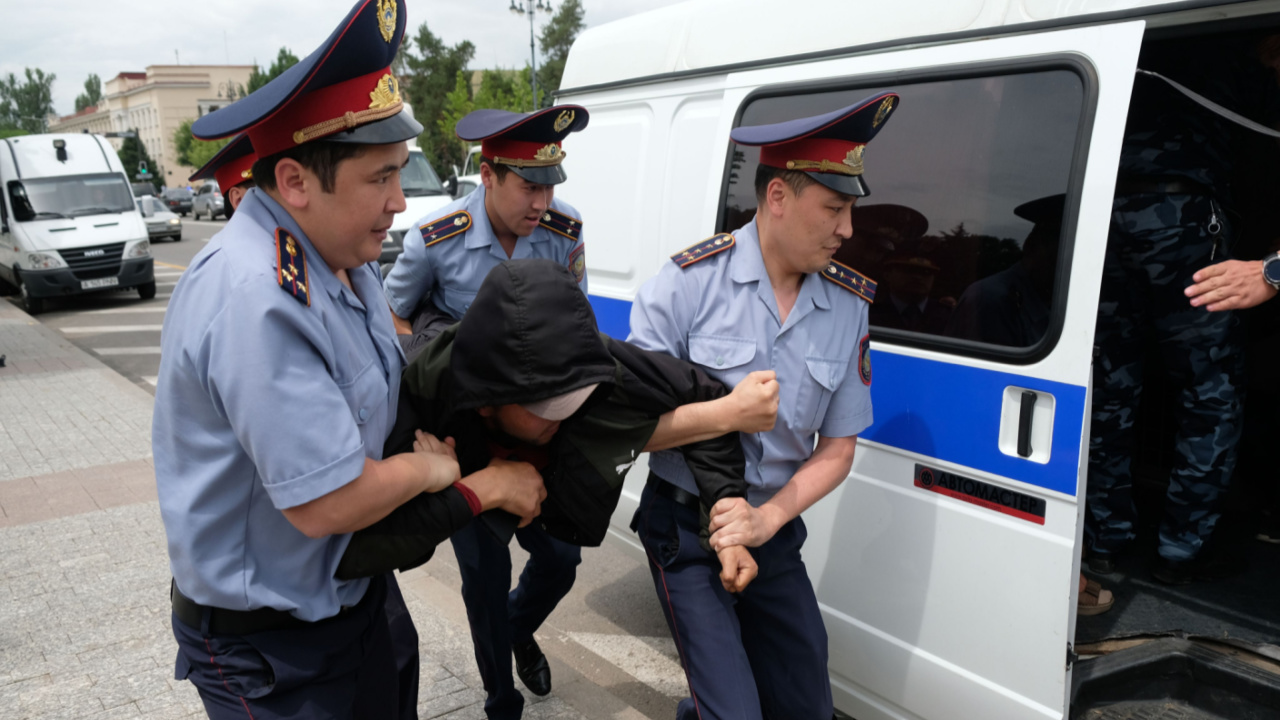
Law enforcement in Kazakhstan detained members of a crime group suspected of forcing IT experts into operating underground facilities for cryptocurrency mining with threats and blackmail. The racketeers allegedly made up to half a million U.S. dollars a month from their business.
Contenido
Kazakhstan Busts Illegal Crypto Mining Organization, Detains Dozens
Authorities in Kazakhstan have arrested a group of “criminally oriented individuals” and former convicts who pressured people savvy in information and crypto technology to run illegal installations for cryptocurrency production. Many of the apprehended 23 people had a background in debt-collecting and extortion, the country’s Interior Ministry said in a declaración this week.
The gang was making estimated profits in the range of $300,000 a 500,000 each month as a result of their unauthorized crypto mining activities, the department further revealed. During searches, police found a number of weapons, including pistols, ammunition and a Kalashnikov assault rifle. One of the gang members turned out to be an army serviceman.
Investigators were able to establish that the undertaking was quite sophisticated, an indication that the group was not working entirely on its own, the news outlet Eurasianet noted in a report. Over the past few months, it has emerged that major mining operations in Kazakhstan were linked to high-ranking officials and powerful businessmen, added the online portal which covers developments in the region.
Kazakhstan became a crypto mining hotspot after China cracked down on the industry in May, last year. Mining companies were attracted by its low electricity rates but their influx caused an increasing energy deficit. The government in Nur-Sultan responded by taking steps to reduce the consumption in the sector by cutting power supply to licensed mining enterprises on a number of occasions, increasing a tax levy, and going after illegal miners.
This spring, the Financial Monitoring Agency discovered and cerrar más que 100 underground mining farms. Commenting on the offensive, the agency remarked that among their operators were firms affiliated with Bolat Nazarbayev, brother of Kazakhstan’s ex-president, Nursultan Nazarbayev, and Alexander Klebanov who heads the Central Asian Electricity Corporation.
Some of the other closed down facilities were linked to Kairat Sharipbayev, who is the former chairman of the national gas distribution company Qazaqgaz and is believed to be married to Nazarbayev’s eldest daughter, Dariga. Yerlan Nigmatulin, brother of the former speaker of the lower house of parliament, is also suspected of having profited from unauthorized mining, los detalles del informe.
Do you expect Kazakhstan to continue to clamp down on cryptocurrency mining? Cuéntanos en la sección de comentarios a continuación..
Créditos de imagen: Shutterstock, pixabay, Wiki Commons, Vladimir Tretyakov
Descargo de responsabilidad: Este artículo es solo para fines informativos.. No es una oferta directa o solicitud de una oferta para comprar o vender, o una recomendación o respaldo de cualquier producto, servicios, o empresas. Bitcoin-Tidings.com no proporciona inversión, impuesto, legal, o asesoramiento contable. Ni la empresa ni el autor son responsables, directa o indirectamente, por cualquier daño o pérdida causado o presuntamente causado por o en relación con el uso o la confianza en cualquier contenido, bienes o servicios mencionados en este artículo.
Leer Descargo de responsabilidad
